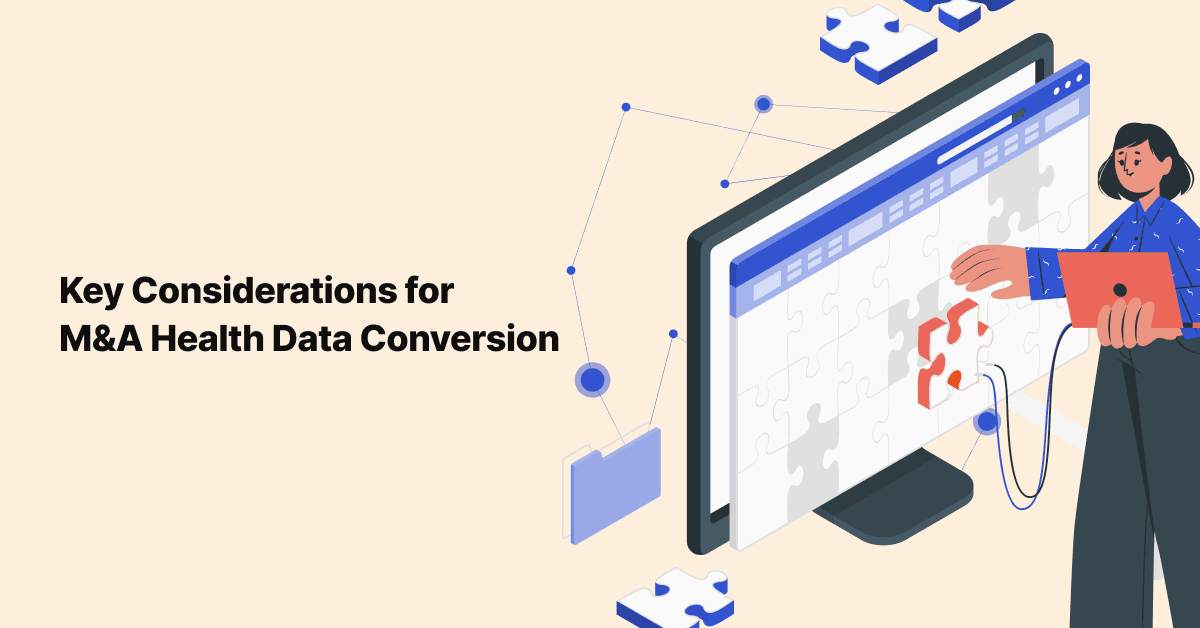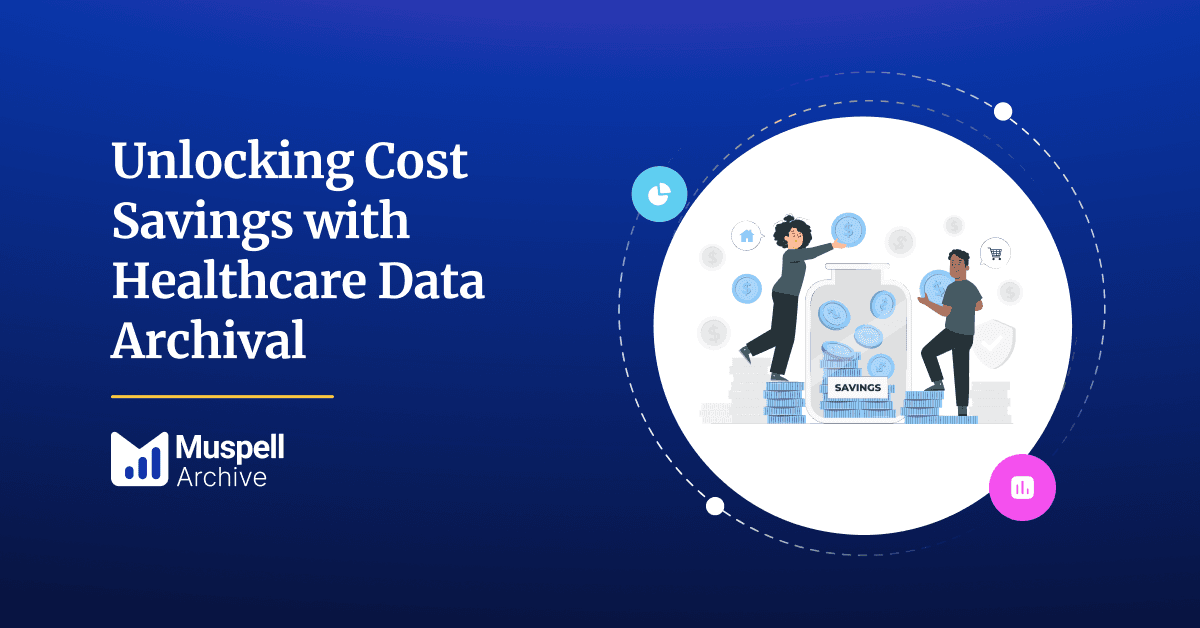
The “What to Consider” List for Health Data Conversion During M&A
Healthcare has witnessed a significant increase in Mergers and Acquisitions (M&As) in the last decade. One …

Healthcare data archival offers healthcare leaders significant potential for reducing costs. Integrating a robust archival solution empowers healthcare organizations to store and maintain large data volumes efficiently. Moreover, with regulatory requirements constantly evolving, maintaining comprehensive records is imperative for compliance and risk management.
A well-structured healthcare data archival system not only meets your compliance obligations, but also serves as a platform for data analytics and a training ground for Artificial Intelligence (AI) modules. In this blog post, we explore the connection between cost savings and healthcare data archival, and examine the tangible benefits it offers.
1:Reducing the Application Portfolio
One key strategy for achieving cost savings is reducing the application portfolio. Minimizing the operational burden associated with maintaining system availability, managing access, and ensuring backups and redundancy for data preservation is a great first step. By streamlining the application landscape, organizations can significantly cut down on operational costs.
The Expected Outcome: Merging disparate legacy systems into a single archive and decommissioning those systems enables your healthcare organization to unlock cost savings. Healthcare data archival solutions cost much less than legacy applications, many of which will be obsolete within a few years. A report by IDC, the premier research entity for technology markets, suggests healthcare facilities can expect to slash their legacy applications cost by 50%.
2: Finalizing What to Archive and What to Migrate
Efficient cost management involves making informed decisions about which data sets to archive and migrate. Strategic decision-making is crucial for a successful healthcare data archival project. A carefully planned process ensures your EHR application retains only relevant and valuable information, leading to highly optimized storage costs.
The Expected Outcome: Healthcare institutions are required by law to retain patient health records for specific durations. Employing a healthcare data archiving solution allows you to store older patient data while keeping current data accessible on their Electronic Health Record (EHR) systems. Modernized healthcare data archival solutions enable your care providers and clinical teams to dive into the legacy within their EHR applications effortlessly. This capability to archive and retrieve old patient health information aids healthcare organizations in achieving notable cost reductions.
3: Workflows for Better Patient Data Searchability
Enhancing patient data searchability is not just a convenience, but a cost-saving strategy. Efficient workflows that facilitate quick and accurate retrieval of patient data contribute to improved operational efficiency, reducing the time and resources spent on accessing crucial information.
The Expected Outcome: Contemporary healthcare data archival solutions offer a plethora of advanced functionalities in comparison to their traditional counterparts. Traditionally, data archival systems served as a straightforward method to back up data that isn't frequently accessed. However, the intricate nature of Protected Health Information (PHI) and the stringent HIPAA guidelines make employing such simplistic solutions challenging for healthcare organizations.
Modern healthcare data archival applications are designed to seamlessly integrate with Electronic Health Record (EHR) systems, facilitating your care providers to efficiently retrieve legacy data. This streamlined access to historical data is more cost-beneficial in the long term compared to the cumbersome process of running legacy EHR applications solely for data viewing purposes.
4: Effective Data Management
Security is paramount in healthcare, and effective access management to legacy data is a crucial aspect of cost savings. Ensuring full compliance with both HIPAA and SOC2 standards enables healthcare entities to mitigate the threats associated with penalties and data loss. Not only does secure data access management prevent expenses linked to legal consequences, but it also fosters trust among patients and stakeholders.
The Expected Outcome: Healthcare data archiving enables your healthcare organization to redirect previously allocated internal resources to other strategic endeavors aimed at enhancing the organization's growth and efficiency. Workflow streamlining, facilitated by consolidating various data sources, aids in cost reduction by optimizing processes and minimizing redundancy.
The synergy between cost savings and healthcare data archival is undeniable. Implementing the top four strategies]discussed above helps healthcare facilities unlock immediate savings. With advancements in healthcare IT applications, embracing data archival isn't just a best practice, but a crucial strategy for healthcare organizations striving to deliver quality care while efficiently managing expenses.
Healthcare data archival is often overlooked since healthcare leaders aren't fully aware of how it has evolved in recent years to assist them with legacy data management. A complete understanding of its benefits will help healthcare organizations transform their data into highly usable and secure resources.
Learn more about Muspell Archive, a bespoke healthcare solution designed to assist the needs of swiftly growing healthcare organizations. Talk to our experts today!
Join over 3,200 subscribers and keep up-to-date with the latest innovations & best practices in Healthcare IT.

Healthcare has witnessed a significant increase in Mergers and Acquisitions (M&As) in the last decade. One …

It is no small effort for healthcare systems to implement a Health Information Exchange (HIE). Whether the …

Many hospitals and health systems are adept at patient care and clinical operations. Still, it’s a reach to …